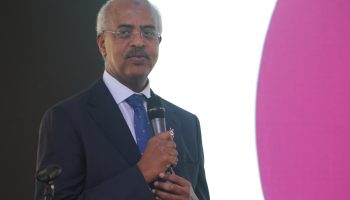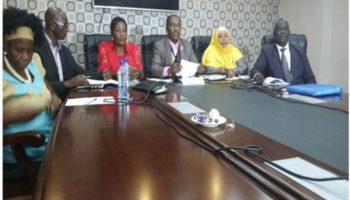- October 29, 2019
- Posted by: p mulee
- Category:
The government has announced a plan to invest more than Sh80 billion in the next three years for rehabilitation and expansion of sewerage infrastructure across the country.
Deputy President William Ruto, while reading President Uhuru Kenyatta’s speech during the Water and Sanitation conference, said the investment upon completion in 2022, will increase the national access to sewerage services to about 40 per cent.
Ruto said President Uhuru Kenyatta has directed the Ministry of Water, Sanitation and Irrigation to pursue incentives aimed at increasing use of recycled water to expand irrigation.
Ruto urged the Water Services Providers through the Council of Governors to upscale waste water management through use of prudent methods, including swift responses to damages on sewer lines and related installations to curb spillage of raw sewerage into water ways.
He said safe waste water disposal supports food security through use of recycled water for irrigation.
The DP said there is great need to reduce water wastage across the country.
“The government is strengthening regulatory institutions such as the National Environment Management Authority (NEMA) and the Water Resources Authority (WRA) to further empower them in the enforcement of regulations to avoid pollution of our water resources,” he said.
Ruto added, “Industries are required to include pre-treatment facilities in their premises to ensure acceptable standard of waste water is discharged into the sewerage system and to the environment and the rivers,” Uhuru said.
The DP said major pollution emanates from improper disposal of solid waste, especially in the cities and towns.
“Dumping of domestic and other solid waste on the river banks is not a solution and must be discouraged,” he said.
This comes even as Jubilee government grapples with restoring the glory of Nairobi river.
In partnership with Nairobi County Government, a recreational team that was formulated last year is currently conducting the cleaning services.
Last year, a report indicated that Nairobi City Water and Sewerage Company could not account for the disposal of more than 66 per cent of human waste.
This was reported on by Water, Sanitation and Hygiene (WASH) experts from the private sector and the government unveiled a ‘Sh*t Flow Diagram” (SFD), a map that depicts the flow of fecal waste in Nairobi.
The diagram showed that 66 per cent of fecal waste generated is left untreated, posing serious risks to the environment and public health.
Nairobi Water acting Technical Director Lucy Njambi said there was little documentation on sanitation and acknowledged a major challenge in human waste disposal.
The official reported that only 100,000 cubic litres of human waste gets to the Ruai treatment plant daily and that the county cannot account for over 400,000 cubic litres.
“The plant receives a very small percentage of waste despite the pumping of more than 500,000 litres of water daily,” she said.
“We do not know how much goes to septic tanks, conservatories and pit latrines and we do not know where it is getting lost – whether through overflowing and use of pit latrines,” she added.
It was also revealed that only 40 percent of residents are connected to the sewer system.
Fifty-four percent of these residents make use of different forms of non-sewered sanitation options, with 30 per cent of waste emanating from these offerings being poorly handled.“The remaining six percent still practice Open Defecation (OD),” the report stated.
For improvement, Njambi said the county was working on more sewer coverage due to encroachment mostly in informal areas and by formal housing.
















